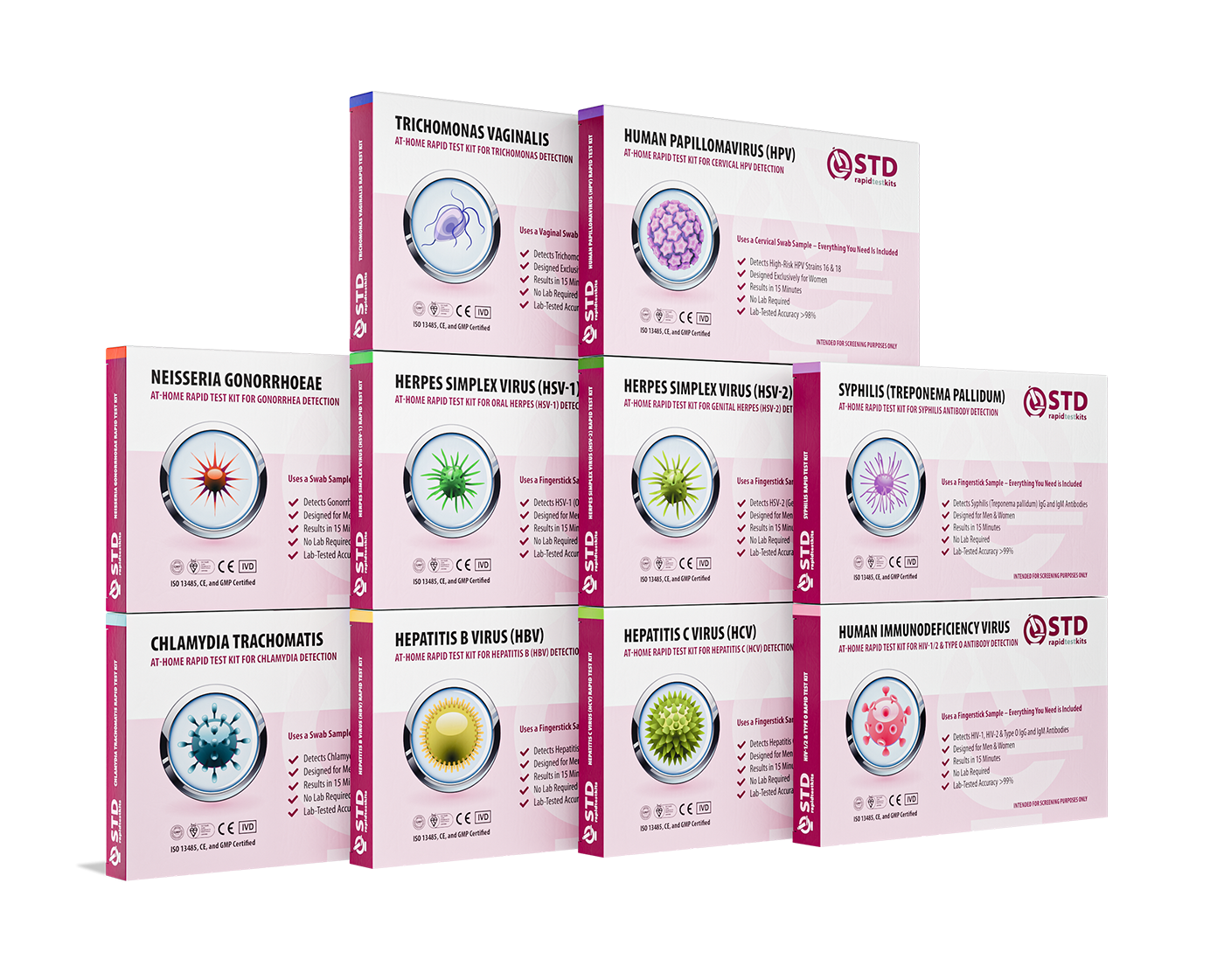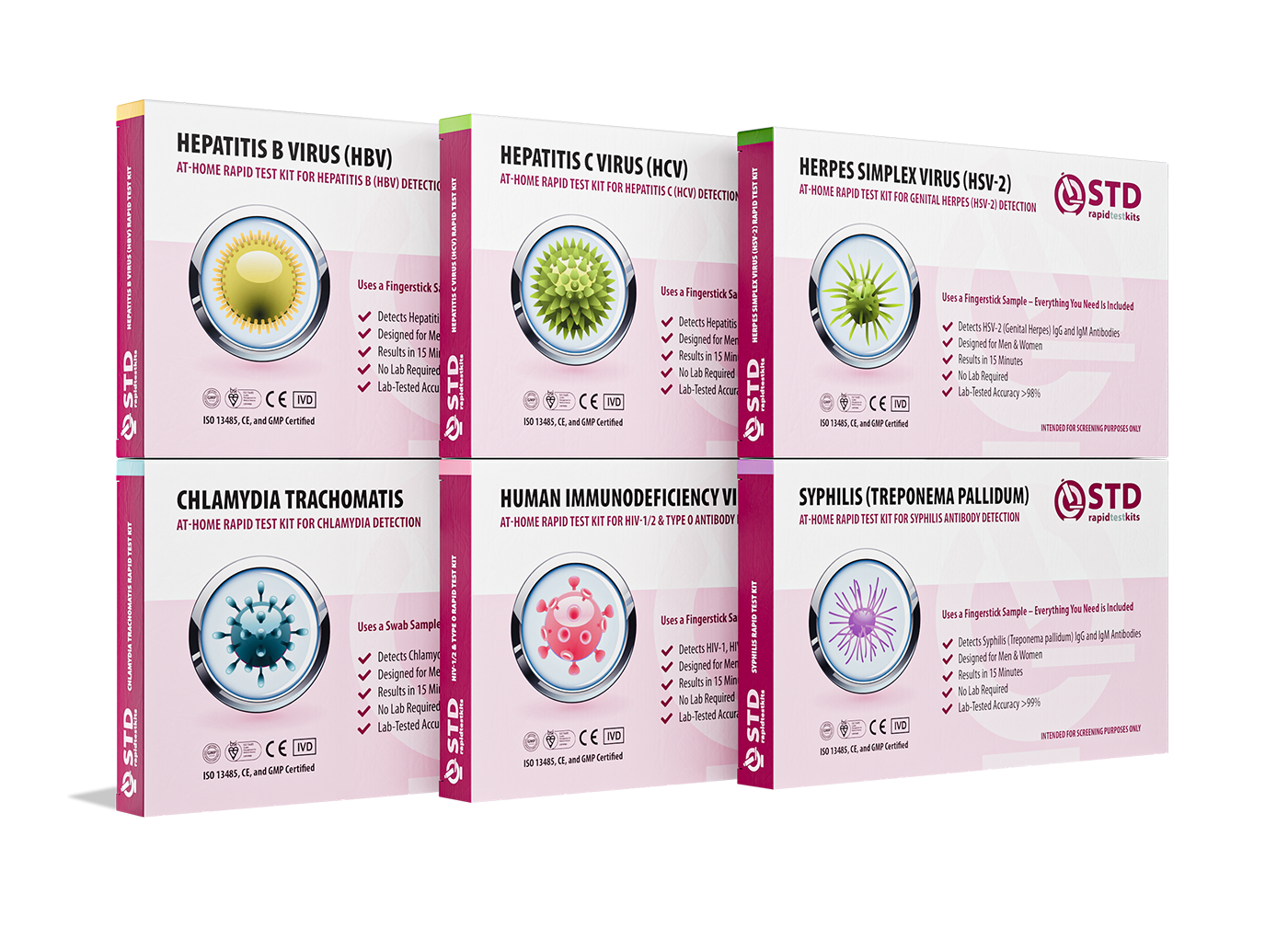Think You’d Know If You Had an STD? Think Again
When the Diagnosis Hits Harder Than the Betrayal
Infidelity is brutal. But finding out you’ve also been infected? That can hit even harder, because now the lie has a body count, and it’s yours. You may feel disgusted, angry, ashamed, or just plain numb. And that’s normal. The truth is, the emotional fallout of being diagnosed with an STD after cheating isn’t just about sex, it’s about consent, control, and safety being stripped away without warning.
One woman in a Reddit forum put it this way: “It wasn’t just that he slept with someone else, it’s that he gambled with my body without telling me.” You didn’t sign up for this, but you’re not powerless. Step one is taking back control.

People are also looking for: Can You Get HIV from a One-Night Stand?
First, Breathe. Then Test.
Whether you have symptoms or not, the first move after finding out your partner cheated is testing. Many STDs, including chlamydia, gonorrhea, and even HIV, can be present without symptoms, especially in the early stages. That’s what makes them easy to spread and hard to detect without screening.
At-home testing options like the Combo STD Home Test Kit offer private, fast results you can act on. It’s discreet, accurate, and doesn’t require facing a waiting room if you’re not ready.
What to test for after infidelity
If you test positive, don’t panic. Most STDs are treatable, some even curable with a single dose of antibiotics. But untreated, they can cause long-term damage to your fertility, immune system, or mental health.
The Most Common STDs Passed Through Infidelity
When someone steps out, they don’t usually stop to think about STI transmission, and they don’t always wear protection. That means infidelity is a major risk factor for catching and spreading STDs. Here are the top culprits that show up in betrayed partners:
- Chlamydia: Silent but highly contagious. Many people have no symptoms at all. If untreated, it can lead to PID (pelvic inflammatory disease) and infertility.
- Herpes: Often transmitted even when no sores are visible. You may find out through a random outbreak or during routine blood work.
- HPV: Some strains cause genital warts; others can lead to cervical or throat cancer. Men often show no signs but still spread it.
- Gonorrhea: Symptoms include burning during urination and unusual discharge, but it can also be symptomless.
- HIV: If your cheating partner had multiple partners, drug use, or unprotected sex, HIV exposure is possible. Early treatment makes a massive difference, so don’t delay testing.
Check Your STD Status in Minutes
Test at Home with Remedium10-in-1 STD Test Kit

 For Women
For Women Results in Minutes
Results in Minutes No Lab Needed
No Lab Needed Private & Discreet
Private & DiscreetOrder Now $189.00 $490.00
For all 10 tests
“Was It Me or Was It Them?”, The Blame Spiral
STD diagnosis after betrayal can stir up obsessive, even torturous questions: “Did I have this before?” “Could I have given it to them?” “Who started it?” While it’s natural to want answers, pinning down exactly who gave what to whom can be medically, and emotionally, tricky. Incubation periods vary. Some STDs stay dormant for months or years. Testing timelines can be vague.
If your partner is the only one who stepped outside the relationship, and you’ve been monogamous, the logic is clear. But emotionally? It can still feel like a fog of shame and blame. Know this: having an STD doesn’t mean you’re dirty, and it definitely doesn’t mean you deserved what happened. It means someone was careless with your body, and you’re taking charge now.
Rebuilding Trust in Your Body (and in People)
After betrayal, you might not trust anyone, including yourself. You may second-guess your instincts, your choices, or even your body. An STD can make you feel contaminated, like your body’s been hijacked by someone else’s recklessness.
This isn’t just about antibiotics, it’s about restoration. One of the first steps to healing is separating your identity from the infection. You are not your diagnosis. You’re someone who took a hit and is choosing to heal, smartly, bravely, and fully.
Sex may feel unsafe for a while. That’s okay. Rebuilding sexual confidence after an STD (especially one linked to betrayal) takes time. For some, it starts with therapy. For others, it’s about rediscovering solo pleasure, body neutrality, or even celibacy until trust returns. There's no right path, just your path.
How to Tell Someone You Have an STD, Especially When You Didn’t Cause It
If you’re newly diagnosed and planning to sleep with someone else down the line, you’ll eventually face the question: “When do I tell them?” And maybe even harder: “How do I explain that I didn’t do anything wrong?”
Here’s a script to start with: “I want to be honest because I respect you. I tested positive for [STD] after my last relationship ended. I didn’t cheat, but my partner did. I’m getting treated and managing it responsibly.”
This flips the narrative. You’re not the threat, you’re the trustworthy one. You were betrayed, but you're handling your health like a boss.
Most people respond with empathy, especially when you’re upfront. And if they don’t? That’s a red flag, not a reflection of your worth.

People are also looking for: What Is Hepatitis C?
Revenge, Rage, and What to Do With All That Emotion
Let’s not pretend: the urge for revenge is real. Maybe you want to out them publicly. Maybe you want to DM the person they cheated with. Maybe you want to smash a window (or their gaming console). Betrayal plus infection is rage fuel, and your brain wants justice.
But revenge rarely leads to peace. It usually just extends your pain cycle. What you really want, underneath the fury, is to be heard, validated, and safe.
So scream in the car. Journal like your pen’s on fire. Call a friend and ugly cry. But after that, make a move that serves you: get tested, start treatment, book therapy, take your sexual power back. That’s revenge worth living for.
Should You Tell Their Other Partner(s)?
If you know your ex cheated on you with someone specific, and that person may also be at risk, you’re facing a moral fork in the road. Do you tell them? Is it your place?
Legally, there’s no obligation in most places. Ethically? It depends on your emotional readiness. But many people choose to inform “the other person” for one simple reason: compassion. They didn’t consent to exposure either. They might not even know they were part of a triangle.
You don’t have to get dramatic. A simple message, “I tested positive for [STD] and thought you should know, in case you want to get tested too”, is more than enough. If it feels unsafe or triggering, use anonymous partner notification services or ask your clinic to reach out on your behalf.
From Trauma to Empowerment: What Comes After Diagnosis
The moment you realize you’ve got an STD from a cheating partner is often a low point. But it doesn’t have to stay that way. Over time, this can become one of your most powerful awakenings.
You learn to advocate for your body. You learn what you wwill nd won’t, tolerate in a relationship. You may even find deeper self-worth, sexual clarity, or a new kind of confidence. Not in spite of the diagnosis, but because of how you responded to it.
You're not broken. You're not less lovable. You are informed, resilient, and still entirely worthy of safe, joyful, connected sex, when you’re ready for it.
Check Your STD Status in Minutes
Test at Home with Remedium6-in-1 STD Test Kit

 For Men & Women
For Men & Women Results in Minutes
Results in Minutes No Lab Needed
No Lab Needed Private & Discreet
Private & DiscreetOrder Now $119.00 $294.00
For all 6 tests
FAQs
1. Can I get an STD even if my partner didn’t have symptoms?
Yes. Many STDs like Chlamydia, Gonorrhea, and Herpes can be transmitted by asymptomatic partners. A person can carry and spread an STD without ever knowing they have it.
2. How soon should I get tested after finding out about the cheating?
Some infections show up in tests within a few days, while others take 2–6 weeks. It’s smart to test immediately and then retest at 3 months to catch anything with a longer window.
3. Can I sue my partner for giving me an STD?
In some jurisdictions, yes, if they knew they were infected and didn’t tell you. But these cases are complex. Most people focus on healing first, legal action second.
4. What’s the best test to take after a cheating incident?
A full STD panel is recommended. You can use a Complete STD Home Test Kit Package to check for common infections like HIV, Herpes, Chlamydia, and Syphilis.
5. How do I know who gave the STD to whom?
You might not. Incubation periods vary by infection, and some STDs can stay hidden for months. Focus on treatment and honesty moving forward, not retroactive blame.
6. Can a cheating partner give me HPV or Herpes even if they wore a condom?
Yes. Both viruses can be spread through skin-to-skin contact in areas not covered by a condom.
7. Will this STD affect my fertility?
Some STDs like Chlamydia or Gonorrhea can cause infertility if untreated. Early testing and treatment usually prevent long-term complications.
8. How do I talk to future partners about my STD?
Be honest, clear, and calm. Share your diagnosis early enough for informed consent, but after some trust has been established. Frame it as part of your health, not your shame.
9. Is it safe to have sex again after treatment?
Yes, once you've completed treatment and been cleared by a provider. Some infections like Herpes require ongoing management and protection methods.
10. Can I still find love after getting an STD from cheating?
Absolutely. People with STDs have healthy, loving relationships every day. The key is communication, self-respect, and finding someone who values both.
Sources
1. Mayo Clinic – STD Diagnosis and Prevention
2. American Sexual Health Association – Cheating & STDs
3. Planned Parenthood – Getting Tested After Cheating
Written by M.D.F. Davis., reviewed by Dr. Alex Hart, MPH










